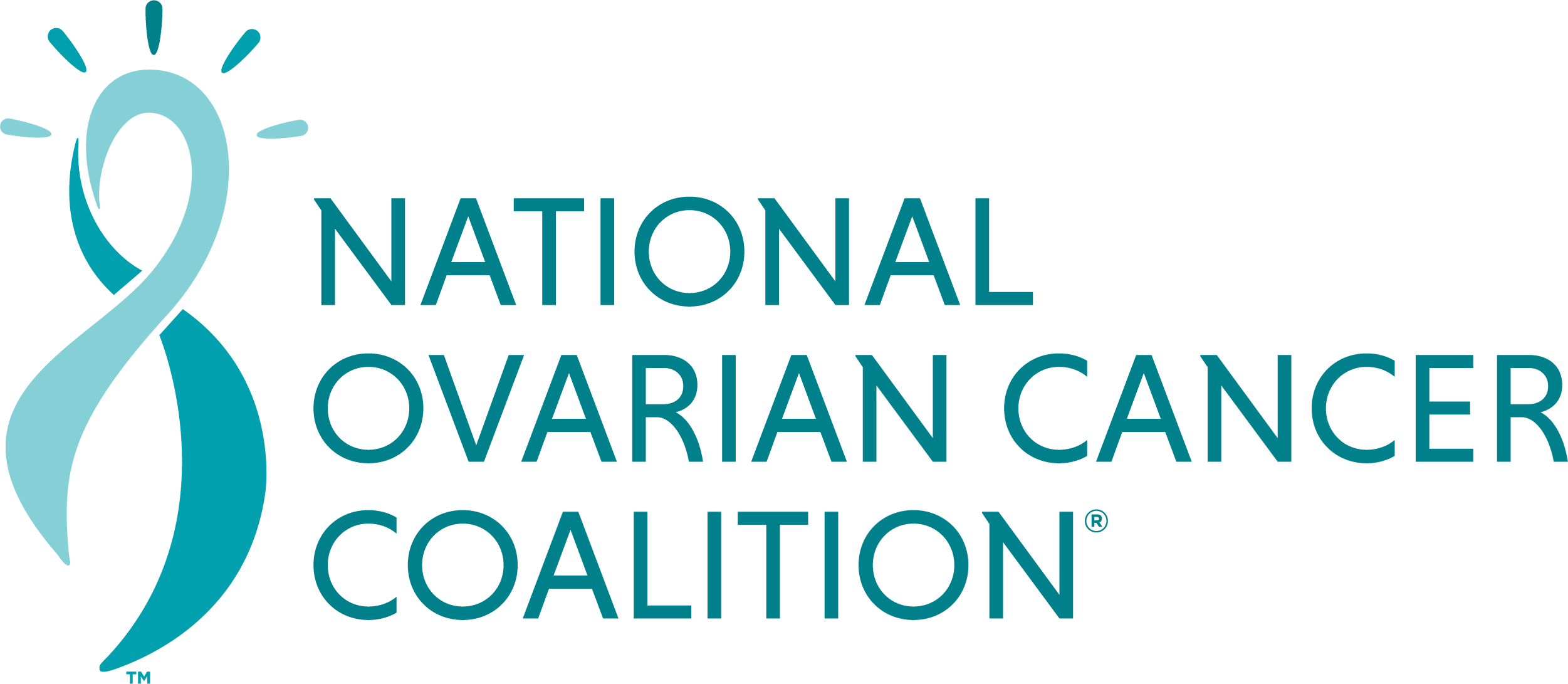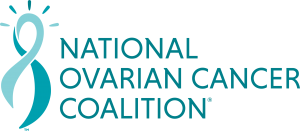What is chemotherapy?
Chemotherapy uses drugs designed to destroy cancer cells or stop their growth. The drugs given depend on the type of ovarian cancer. Usually, two different types of drugs are given together; there are many combinations of drugs. Chemotherapy may be used to:
- Kill cancer cells that may be left after surgery (“adjuvant” chemotherapy)
- Shrink ovarian tumors before surgery or radiation therapy to make the treatment easier (“neoadjuvant “ chemotherapy)
- Kill any cancer cells that have spread (metastasized) to other parts of the body
There are different forms of chemotherapy, all given at a cancer center, hospital or doctor’s office:
- By mouth in pill form
- Injected into a vein (IV)
- Injected into the intraperitoneal (IP) abdominal space by a catheter (thin tube)
- Circulated through the peritoneal cavity at the time of surgery (HIPEC)
Dosage and frequency may vary from once a day, once a week or even once a month, depending on the type of ovarian cancer and chemotherapy used. The duration of chemotherapy depends on what research shows to be the most effective for the particular type of cancer.
Managing chemotherapy side effects
Chemotherapy can cause physical, emotional and/or psychological side effects. Physically, it kills cancer cells, but can also attack some healthy cells and deplete the body’s strength. There are medications that can help manage those side effects.
For more on the common side effects caused by chemotherapy, along with helpful tips, download the NOCC booklet Ovarian Cancer Quality of Life.
Anxiety and Depression
Many women experience some form of anxiety and depression during their treatment. Refer to our Quality of Life brochure for more information.
Chemobrain (cognitive function)
It’s possible that memory problems, difficulties with concentration or “fogginess” may occur while undergoing chemotherapy or other treatments. It’s important to talk to your doctor since there may be ways to manage or treat these symptoms. Other factors may also play a role, such as insomnia, fatigue, depression, stress and anxiety.
Constipation
During treatment, it may be difficult to pass a stool (constipation). These changes can be caused by cancer treatment, changes in diet, pain medication and inactivity. If constipation is severe or lasts more than a few days, talk to your doctor. It may help to:
- Eat high fiber foods
- Move around as much as possible
- Add a fiber laxative to your diet
- Talk to a doctor before using suppositories (laxatives other than fiber, stool softeners or enemas)
Diarrhea
Diarrhea is loose, watery stools (bowel movements). Diarrhea can be dangerous because the body may not absorb enough water and nutrients and can cause you to become dehydrated or malnourished. Chemotherapy and other cancer treatments can cause diarrhea or make it worse. If it’s severe or lasts more than a few days, talk to your doctor. It may help to:
- Drink plenty of fluids
- Avoid insoluble fiber (whole grains and bran, nuts and some vegetables)
- Add soluble food (some fruit, including apples and berries, potatoes, lentils, peas, barley, oats and oat bran)
- Eat small meals and often
- Use reduced-lactose products
- Avoid caffeine
Fatigue and Anemia
Fatigue (extreme tiredness) is one of the most common side effects of cancer and cancer treatment. Its symptoms include physical, emotional or mental exhaustion. It can also include difficulty concentrating or thinking clearly.
Anemia is the result of a decrease in oxygen transported to the cells throughout the body. This can make you feel tired. Anemia occurs when chemotherapy decreases the ability of the bone marrow to make red blood cells, lowering the amount of red blood cells to carry oxygen throughout the body. Tell your doctor if you are feeling extra tired or have other signs of fatigue or anemia. Here are some tips that may help:
- Adjust daily schedule
- Eat well and stay hydrated
- Allow ample time to sleep
- Conserve energy
- Ask for help when needed
Hair Loss
For many women, losing their hair (alopecia) is one of the most devastating side effects since it’s so visible and linked to a person’s identity and style. Chemotherapy can cause hair loss all over the body, including the eyebrows, eyelashes, arms and legs. Fortunately, the hair almost always grows back following treatment. To manage the stress from hair loss:
- Cut your hair to prepare for hair loss
- Consider wearing a wig
- Treat hair gently and use a mild shampoo
- Try hats and scarves
Infection
Many chemotherapy drugs can reduce the number of white blood cells, increasing the chance of infection. During treatment, even minor infections can become a problem. Some signs of infection include fever, chills, diarrhea, pain and redness at surgical sites, or bloody or cloudy urine. Tell your doctor if you think you may have an infection. To prevent infection:
- Avoid cuts and scrapes
- Wash hands often
- Avoid crowds
- Trim nails carefully
- Take a warm bath or shower daily
- Stay away from sick people
- Drink plenty of fluids
Infertility
After completing ovarian cancer treatment, some women maintain their fertility while others do not. If only one ovary was removed, it may still be possible to become pregnant. Some ovarian cancer treatments may cause infertility, including:
- Surgery to remove both ovaries
- Chemotherapy that changes your menstrual cycle
- Radiation directed at the pelvic area that damages ovaries
There are options for those who want a family, including in vitro fertilization (IVF) with a donor egg, surrogacy and adoption.
It’s important to discuss your fertility preferences and options with your medical team so your treatment can be planned accordingly. If you have undergone treatment for ovarian cancer and wish to have children, we suggest that you see a reproductive endocrinologist – a doctor who specializes in infertility treatment.
Mouth and Throat Problems
Chemotherapy can affect the healthy lining of your mouth, throat and tongue, causing difficulty in swallowing. In addition, the tissue inside the mouth can become irritated and dry, leading to a loss of appetite, mouth sores and infections. It may help to:
- Keep your mouth moist
- Rinse your mouth frequently
- Avoid irritating foods and drinks
Nausea and Vomiting
Cancer treatment can cause nausea and vomiting. This can be prevented with certain medications. Be sure to discuss this with your doctor prior to treatment. Not every person experiences nausea and vomiting, but for those who do, the level of discomfort varies from person to person, drug to drug. It can last from hours, to a day or sometimes longer. Here are some tips that may help:
- Take an anti-nausea medicine
- Relax before treatments
- Avoid greasy, high-fat foods
- Eat and drink slowly
- Rest after eating
- Stay hydrated
Nerve and Muscle Problems
Chemotherapy can affect muscles and nerves, causing tingling, burning or numbness in the hands and feet (peripheral neuropathy). It can also cause loss of balance and clumsiness. It may help to:
- Wear sturdy, non-slip shoes
- Be careful when bathing
- Grab items slowly
- Soak hands and feet
- Move carefully
Pain
Pain is a common side effect of cancer and can be caused by a tumor pressing on nerves, bones or organs. It can also be caused by cancer treatments. Talk to your doctor if you are uncomfortable. It may help to:
- Track your pain levels daily and report trends to your doctor
- Stay on schedule with medication; don’t wait until pain gets worse
- Try complementary therapies
- Meet with a palliative care or pain specialist
Sexual Side Effects
It’s not unusual to lose a desire for sex or are not as interested in it as usual during your treatment. This is understandable, given the emotional and physical stress. Treatment side effects such as nausea, fatigue and pain, along with changes in the body’s appearance (e.g., hair and weight loss) can also reduce libido. Common problems include menopause symptoms, sexual problems and infertility.
Though a patient may be disinterested in sex and feel tempted to withdraw, they should communicate with their partner, address each other’s fears and stay connected. In time, by being tolerant of oneself and only doing what feels comfortable, and as health improves, a patient can look forward to feeling sexual again. It may help to:
- Communicate needs and limits with your partner and address feelings of fear
- Explore non-sexual intimacy, such as hugging, cuddling, kissing and holding hands as satisfying additions or alternatives to sex
- Rest and plan before and after sexual activity, and plan sexual activity during times of heightened energy levels
- Use water-soluble lubricants to help with vaginal dryness caused by hormonal changes
- Contact a counselor or therapist to help with emotional issues and sexual problems associated with cancer treatment and recovery
Skin Irritation
Chemotherapy and other treatments can cause rashes, itching and peeling skin, and increase sensitivity to the sun. Cracked and irritated skin can be more prone to infection, so it’s important to take care of your skin during treatment:
- Apply sunscreen and lip balm
- Use skin products that are doctor recommended (soaps, lotions, moisturizers, powders)
- Let skin breathe
- Stay clean and dry
Adapted from National Cancer Institute and American Cancer Society materials https://www.cancer.gov/about-cancer/treatment/side-effects


